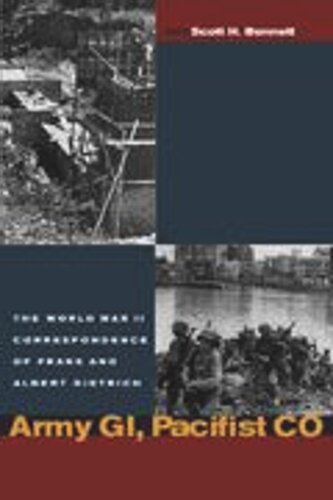

Most ebook files are in PDF format, so you can easily read them using various software such as Foxit Reader or directly on the Google Chrome browser.
Some ebook files are released by publishers in other formats such as .awz, .mobi, .epub, .fb2, etc. You may need to install specific software to read these formats on mobile/PC, such as Calibre.
Please read the tutorial at this link: https://ebookbell.com/faq
We offer FREE conversion to the popular formats you request; however, this may take some time. Therefore, right after payment, please email us, and we will try to provide the service as quickly as possible.
For some exceptional file formats or broken links (if any), please refrain from opening any disputes. Instead, email us first, and we will try to assist within a maximum of 6 hours.
EbookBell Team

4.1
100 reviewsFrank and Albert Dietrich were identical twins whose lives took very different directions during World War II. Drafted into the Army Air Corps and trained as a radio operator, Frank was shipped to the Philippines in 1945, where as a sergeant in the Fifth Air Force he prepared for the invasion of Japan. Albert, a pacifist, struggled mightily to become a conscientious objector and spent two years building dams, saving farmland, and helping the poor at Civilian Service Camps in South Dakota, Iowa, and Florida. Raised in a close, religious, Pittsburgh family, Frank and Albert were inseparable as boys, sharing a strong social conscience. Divided by war, they kept in touch by writing hundreds of letters to each other. The correspondence concerns everything from the daily drudgery of service—loneliness, lousy food—to heartfelt debates about war, peace, and patriotism. This absorbing selection of letters offers fresh perspectives on the American experience during World War II. The first published correspondence between GI and CO brothers, the letters are an uncommonly articulate chronicle of military service and life on the home front, including GI marriage and parenthood. Back and forth, Frank and Albert also argued about the uses of armed force and pacifist nonviolence in the face of fascism and Nazism. Frank Dietrich’s letters from Manila are vivid descriptions of a liberated city under an uneasy occupation. Albert provides an insider’s view of the pacifist experience, especially the protracted efforts pacifists often had to wage to obtain CO status. Together, the letters bring to life different ways Americans chose to serve their country during one of its most dangerous and demanding times.